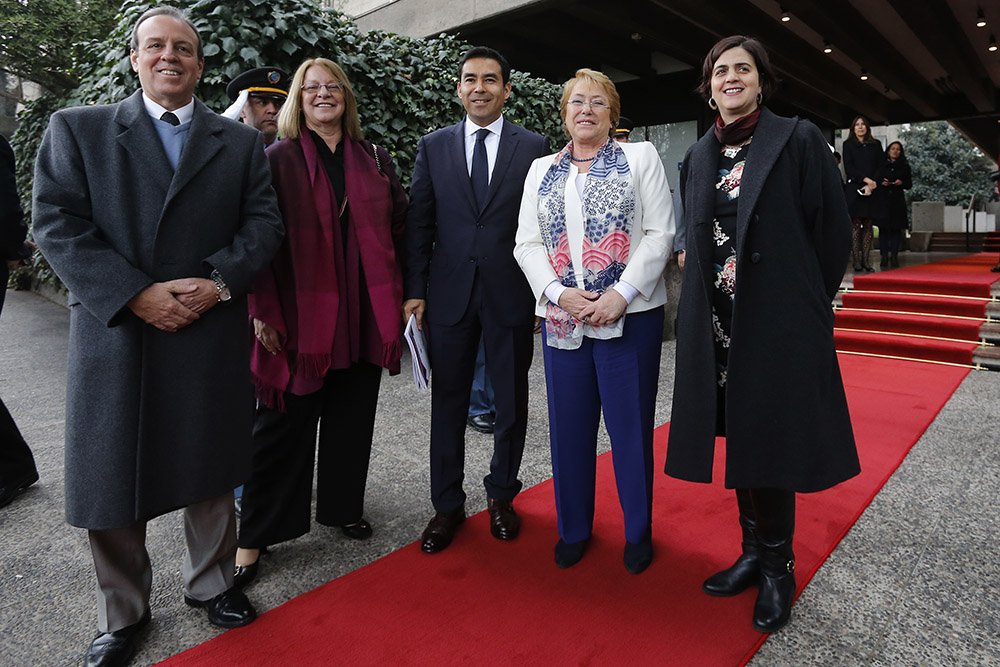Background
The Bonn 2011 Conference “The Water, Energy, and Food Security Nexus” has put the importance of interlinking water, energy and food (WEF) security perspectives (the “nexus”) on the international agenda. At the same time, key outputs in preparation for the Post-2015 Development Agenda indicate the possible adoption of a goal on food security, energy and a broader water goal. The nexus approach considers the interactions and interdependencies between water supply (for various uses), energy and food security, and the associated resources — water, energy, land and related ecosystems. It provides a framework for identifying and resolving trade-offs and synergies. This is a prerequisite to manage overall demand and supply in a sustainable way and reduce possible conflicts.
ECLAC has been working extensively on these issues and is currently involved in a number of WEF nexus-related activities at the national, regional and global scales. It has conducted public policy formulation-oriented studies and provided technical advisory assistance to governments, for example, in:
- Modernization of water legislation.
- Management of water-related conflicts, including those that involve human water supply, irrigated agriculture and hydroelectricity generation.
- Implications of rising energy prices for water management and use, including agriculture and urban water supply.
- Promotion of energy efficiency in the provision of water supply and sewerage services.
- The implications of increasing bio-fuels production for water resources management and use.
- Use and production of non-conventional energy sources in agriculture.
ECLAC actively participates in regional and global initiatives, such as the UN system interagency coordination mechanisms UN-Water and UN-Energy, as well as with other stakeholders worldwide.
Justification
WEF interdependencies in Latin America and the Caribbean are diverse, complex and intense. Current trends suggest that they will be subject to increased stress in the future mostly because of population growth and urbanization; rising income levels and economic growth; an increase in supply and trading levels in terms of quantity and quality of food, water and energy; competition for water in river basins characterized by concentrated economic development; and tendencies towards increasing the water intensity of energy and food production and the energy intensity of water provision for different uses — all this in the context of climate change. A better understanding of cross-sector implications, their potential magnitude and instruments and policies to adequately manage them, is needed, particularly at an early formulation stage of public policies in all sectors involving WEF.
Objectives
- Identify, characterize and better understand the key WEF nexus governance issues and priorities in the specific context of Latin America and the Caribbean.
- Identify public policy options to address these key issues and promote the adoption of good practices, in order to assist governments in the region to strengthen WEF security in the context of socioeconomic development, environmental sustainability and poverty reduction.
- Support policy dialogues and increased collaboration and coordination among relevant stakeholders aiming to bridge silos across the water, energy and food sectors.
Considering the region’s diversity, the dialogue will emphasize activities in those countries which face common high priority WEF nexus issues and which demonstrate strong interest and commitment to this approach. Synergies and cooperation with the activities of the German programmes in the region shall be explored and used. In addition, ECLAC will seek to establish links with other relevant international, regional and national organizations.
Partners
The regional dialogue will be jointly organized by an inter-divisional team within ECLAC in collaboration with the Government of the Federal Republic of Germany (Federal Ministry for Economic Cooperation and Development).
Other links to strategic partners at the relevant international, regional and national levels shall be considered within the steering structure.
Steering structure
- Inter-divisional team at CEPAL.
- GIZ Chile and Germany.
Related content

La CEPAL y la SBIF juntas en el avance de la autonomía económica y el acceso financiero de las mujeres
El próximo 10 de julio tendrá lugar el Seminario “Presentación del Informe: Género en el Sistema Financiero”. Se abordarán las desigualdades de género en el acceso al sistema financiero a partir de…